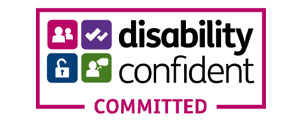What is a trustee or NED
Beyond the reasons for wanting to join a Board, what essentials do you need to know before considering whether to apply for a role? Here are some things to think about; they’re not designed to put you off, and they are a bit dry, but they’re worth knowing!
Age
You must be at least 16 years old to be a trustee of a charitable company or a charitable incorporated organisation (CIO), unless the charity’s governing document says you must be older. You must be at least 18 to be a trustee of any other type of charity.
Time commitment
This is the one consistent factor people underestimate when taking on their first board role. It’s a good idea to think about your time and if you are realistically able to give it. Having the backing of your line manager if you are employed so that you are not using up any annual leave is essential– many companies openly support their employees taking the odd voluntary day but those alone won’t be enough time to cover every meeting.
Board are increasingly holding meetings virtually, with many favouring a split between virtual/in person, which will help with managing your time but it is still a considerable part of your day and if you have to travel you’ll need to factor that in.
What you see advertised e.g., 1 day a month, is an average amount of time a board role can take up spread across a year – this usually breaks down as:
- Full Board meetings (usually four a year and can last between 2-4 hours); plus an Away Day/Strategy Day, which tends to be a full day.
- Sub-committees – you might be asked to join one, it could be around finance and audit, HR and employee wellbeing, or income generation. Those meetings can be held on the same day as the full Board meeting, but many organisations will hold them separately throughout the year; factor in additional meetings of around 1-2 hours.
- Board papers: depending on the size of the charity they can be considerable documents to read and although you’ll learn what’s relevant to you as you gain experience, you will likely spend quite a few hours going through them. And then reading them again a day before the meeting!
Check out our videos on your YouTube channel to hear how trustees and NEDs have learned to manage their time.
What is the difference between a Charity trustee versus a Non-Executive Director?
Trustee, Director or Non-Executive Director: it can get a little bit confusing when considering the different non-executive roles that exist, but overall, they bring similar responsibilities and accountabilities as a group to ensure an organisation is well run and fulfilling its purpose.
Although you don’t have to be an expert in governance, you do need to be proactive in your approach to learning about it and you need to understand what your role is on that Board and what your duties are.
Charity Trustees
- Trustees act collectively to set the strategic direction of the organisation, periodically review its achievements at Board meetings and provide a high level of scrutiny.
- Trustees are not employed or paid by the charity – but the Board is collectively responsible for ensuring that:
- the charity is well run
- manages its finances responsibly
- carries out its purpose for public benefit
The specific duties of the Board of Trustees will be set out in the organisation’s governing document which can be called its constitution, articles of association or trust deed. This sets out the rules by which the organisation must be run and includes: its purpose (Objects) in existing, who it benefits, the activities it can be involved in, where it operates, and the powers of the Board.
All trustees, not just the treasurer, are responsible for the charity’s finances and should be able to understand, consider and comment on financial information.
Director
- a company director of a charity which is structured as a company
- a senior employee of the charity, but not a company director
Anyone who is a company director should be registered as such at Companies House and has certain duties under companies’ legislation. Company directors of company charities are charity trustees and must be registered with the Charity Commission as well as being registered with Companies House.
Liability
It’s rare for charity trustees to be prosecuted by third parties but understanding the differences between incorporated and unincorporated charities is worth knowing in terms of what personal liability you might hold.
Incorporated charities the liability of trustees is limited to if they have acted negligently or been dishonest or caused loss to the charity. For unincorporated charities, trustees enter into a personal contract with the charity (which isn’t a legal entity) and the contractual performance of the charity will fall on them including any financial losses. Most unincorporated charities should offer trustee indemnity insurance – it’s worth checking if you are unsure.
Non-Executive Directors
The role of the Non-Executive Director holds some similarities to a trustee; they are responsible for the active governance of an organisation. It is their job to act as an independent member of the Board, advising on the long-term strategy and providing constructive challenge and sometimes direct intervention to the Executive when necessary. One main difference is that Non-Executive Director roles may be remunerated, with the pay differing quite considerably between public and private sector organisations.
Top Talent: Regeneration and Growth
The growth and infrastructure agenda remains central to the government’s mission, and local authorities across the country are key drivers.
Mastering the Chair and Chief Executive Partnership: Insights from Our Latest Webinar
We recently hosted the second session in our Aspiring Chief Executives webinar series, focusing on a crucial theme for any leader entering the charity sector: Mastering the Chair and Chief Partnership. The session, led by our own Louise Beales, Prinicpal Consultant, and special guest Ciara Eastell, an experienced charity CEO, Chair, and coach, both provided a wealth of practical advice for those stepping into executive roles, especially within non-profit and charitable organisations.
Mastering the Chair/CEO Partnership: Your First 100 Days and Beyond – A Starfish Search Webinar
Starfish is dedicated to supporting leaders at every stage of their journey and we know that one of the hardest steps is how to go about finding the right opportunity, and what to expect when you get your first chief executive role. We are pleased to be running a webinar for our new Aspiring Chief Executives programme.
ACCREDITATIONS


ESPO is a public sector owned professional buying organisation (PBO), specialising in providing a wide range of goods and services to the public sector for over 40 years. Starfish Search has been awarded a place on ESPO’s Strategic HR Services framework (3S). Services we offer under the framework include: Lot 1, Executive and Managerial Interim Recruitment Lot 2, Executive and Managerial Permanent Recruitment.


Starfish are proud to be certified Disability Confident Committed. This scheme provides employers with the knowledge, skills and confidence needed to attract, recruit, retain and develop disabled people in the workplace.


Crown Commercial Service supports the public sector to achieve maximum commercial value when procuring common goods and services. In 2020/21, CCS helped the public sector to achieve commercial benefits equal to £2.04bn - supporting world-class public services that offer best value for taxpayers. Starfish Search has been named as a supplier on Crown Commercial Service’s Executive and Non-Executive recruitment. Services we offer under the framework include: Lot 3 - Non-Executive and Public Appointments.


Bloom, launched in 2012 is the UK’s leading marketplace for professional services. They provide an end-to-end solution for the procurement, contract management and payment of all professional services, via the compliant NEPRO³ framework. Their public sector clients have access to 20 professional services categories and over 4500 accredited suppliers. Bloom provides swift routes to market via either direct award or mini competition. Starfish is an accredited supplier to BLOOM; our services can be accessed via this framework - Executive and Non-Executive Search and Interim Management.
Join the starfish team
We hire people who bring insight, integrity and ambition to their work. If you’re ready to contribute to shaping the future of leadership and you want to explore our current opportunities please get in touch.
